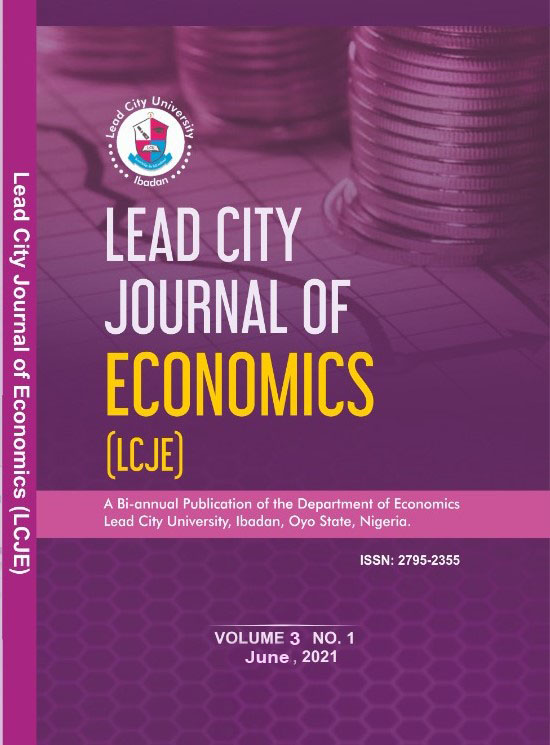Pollutant Emissions and Economic Growth in Nigeria: A Comparative Analysis of Carbon Emissions from Gaseous, Liquid and Solid Fuel Consumption
Keywords:
Carbon emissions, gaseous pollution, liquid pollution, solid pollution, income growth.Abstract
This research study analyses the growth effects of carbon emissions from alternative fuel
consumption by investigating how carbon emissions from gaseous, liquid, and solid fuel usage
affect GDP growth in Nigeria from 1981 to 2020. Using the autoregressive distributed lag
(ARDL) estimator, the result showed that there exists a long run relationship between the
disaggregated carbon emissions and economic growth in Nigeria. The result reveals that carbon
emissions from liquid fuel consumption have a negative impact on both short-term and long-
term output growth. It implies that the price volatility, foreign exchange dependence, and
environmental and health expenses associated with using liquid fuels have a detrimental effect
on economic growth in the short run. The study also showed that carbon emissions from the
burning of gaseous and solid fuels have direct and significant links with economic growth both
in the short and long run. It means that the importance of adopting sustainable and low-
carbon development pathways to ensure sustainable economic growth in Nigeria is highlighted
by the fact that carbon-emitting fuels can contribute to short-term economic growth. On the
policy front, a carbon tax or cap-and-trade scheme should be implemented to reduce carbon
emissions. This will push industry and consumers to use cleaner energy sources and technologies
and generate income for low-carbon infrastructure and research

